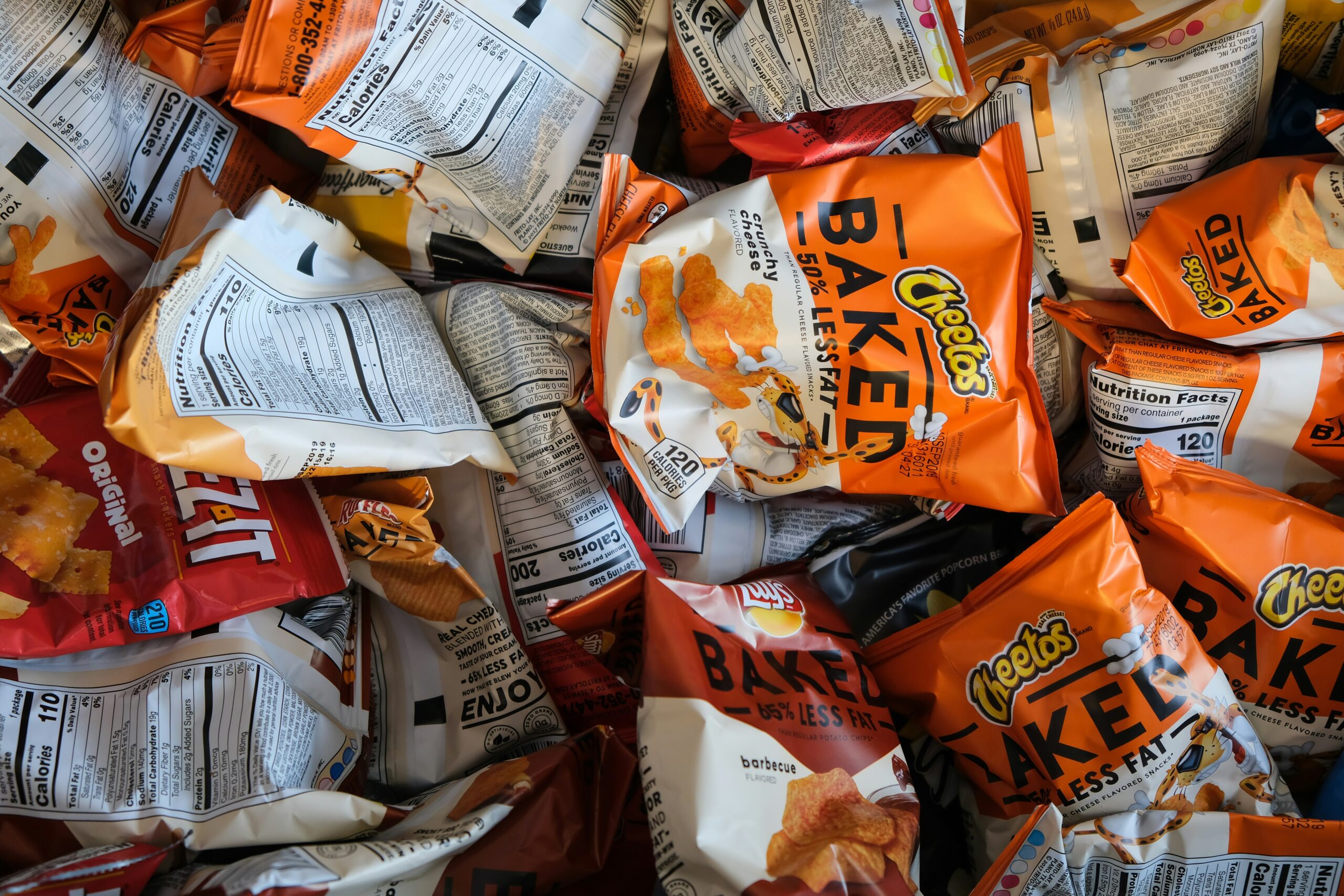Remember that old potato chip commercial that boasted: “Bet you can’t eat just one?” The depth of that admission could scarcely be known by television viewers at the time, but a new study illuminates just how much—and for how long—ultra-processed foods can tempt one into eating another.
Published in Nature by a multi-institutional German science team, the study found that “commonly consumed, calorie-rich ultra-processed snacks,” when added to the diets of healthy-weight men altered insulin responses in the brain immediately.
Most shockingly however, these changes remained for up to a week after the consumption of such food items had ceased.
The study included 29 men aged 19–27 who were divided into two groups and fed different diets, one containing ultra-processed foods, and another that didn’t. Just five days of research, in which most primary markers of obesity and diabetes risk (like body weight, insulin sensitivity, and inflammatory markers) remained unchanged, the ultra-processed foods had profoundly rewired the insulin and reward signaling in the brains of otherwise healthy young men.
Put simply, 5 days of eating ultra-processed foods was enough to change the reward systems in the brains of healthy young men into patterns that mirror what is seen in the brains of obese individuals. These changes persisted even 7 days after consumption of the ultra-processed foods ceased.
“I can only imagine the massive rewiring that is going on with years and years of exposure to an ultra-processed diet that, unfortunately, has become the norm in the United States and elsewhere around the world,” wrote health influencer and medical researcher Rhonda Patrick, commenting on the study.
Many of the study’s parameters were carefully controlled for. Participation was extremely selective, while the diets were prepared by nutritionists who taught the young men how to record food intake in a diary by calories and with photographs. Movement was restricted and monitored to ensure that the background processes could be observed and tracked with fMRI machines as clearly as possible.
In case any readers were wondering, the snacks included things like name-brand potato chips, Snickers bars, and packaged brownies and cookies.
A profound shift
Though weight gain didn’t increase and body composition remained unchanged, the ultra-processed foods group experienced a 63% increase in liver fat accumulation.
Insulin activity increased in the brain during the 5 days of controlled eating, and decreased in the 7 days following its conclusion. Another change was the reduction in white matter integrity in the regions of the brain responsible for reward responses and cognitive processing, and which the authors explain are mainly the result of changes in brain water content, “which is known to be mediated by obesity-associated inflammation”.
The high-calorie diet didn’t just alter brain insulin action—it profoundly rewired how the participants experienced feelings of reward, as indicated in the research by a decreased sensitivity for rewards and increased sensitivity for punishments.
“In persons with obesity-associated insulin resistance, higher responsiveness to insulin has been observed in the insular cortex and midbrain, similar to the increased response that we observed after [high caloric diet],” the authors write.
“Moreover, studies in people with obesity found poorer performance in dopamine-dependent reward-learning paradigms. We could identify a similar alteration in the present study in healthy weight men after overconsumption of high-caloric food, providing evidence that altered reward learning and increased activity of the reward-associated brain regions to insulin may be present before weight gain”.
This study included only men, and the authors speculate that a longer trial and one that included women should be done to expand on their findings.
WaL has previously reported that because they are devoid of protein, ultra-processed foods may be the root cause of a vicious cycle derived from something called the protein leverage hypothesis. This theory shows that if insufficient protein is consumed in the diet, the body tends to overeat carbs and fats in order to scavenge up the deficit. Simultaneously, ultra-processed foods like candy were found to act like gateway drugs towards the consumption of more ultra-processed foods—all of which had virtually no protein to speak of. WaL
We Humbly Ask For Your Support—Follow the link here to see all the ways, monetary and non-monetary.
PICTURED ABOVE: Ultra-processed foods were shown to alter insulin activity in the brain even 7 days after consuming them. PC: Ryan Quintal on Unsplash



